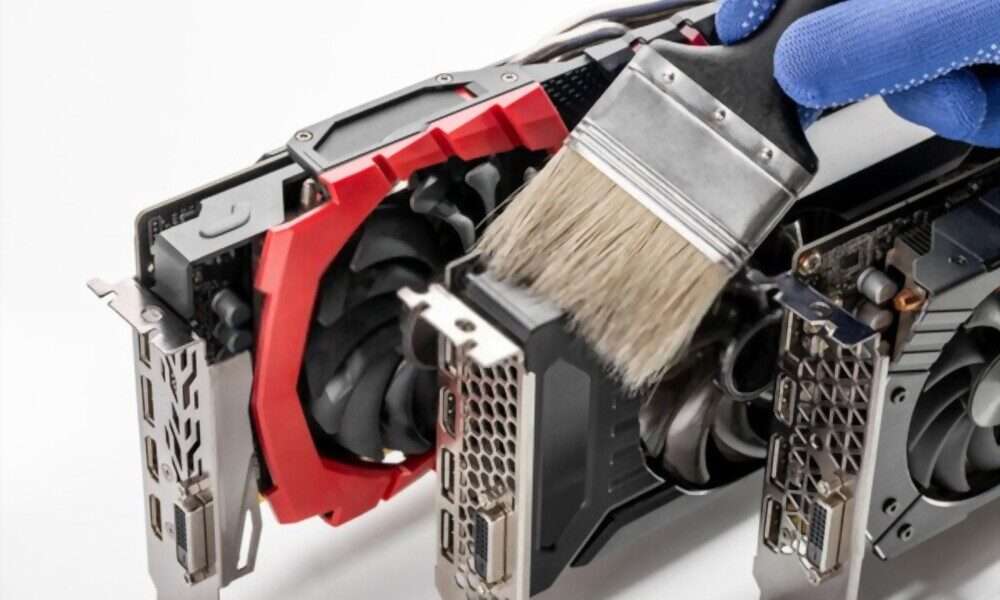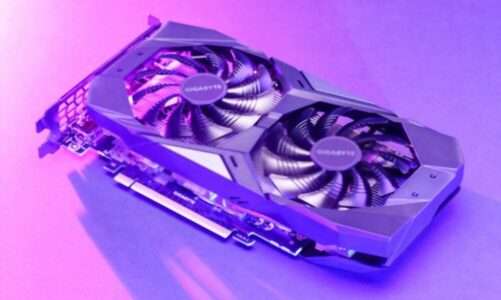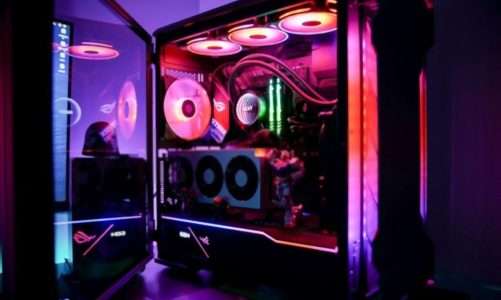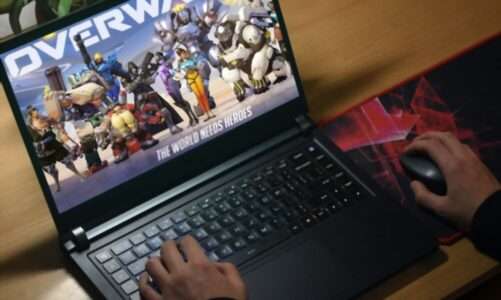Quick Navigation
Heavy games and graphical applications demand more power from your GPU. As a result, the temperature of your graphics card might increase over time. The fans of your GPU will spin faster to cool down the graphics card. This is a normal phenomenon that most modern graphics cards come with.
However, if you see an unusual rise in GPU temperature without running any demanding game or demanding application, then your graphics card is overheating and you need to fix this to prevent any further damage to your card.
There might be single or multiple factors behind the GPU overheating. Therefore, you have to go through all of them to troubleshoot the problem.
Some Causes Behind GPU Overheating & How to Fix It
Modern GPUs are integrated with technology that keeps the card cooler even under heavy load (100%). This mostly occurs when you push to a higher resolution which compels your GPU to use most of its resources, resulting in more heat. As the temperature of your graphics card rises, the temperature sensors on the graphics card signal the GPU fan to work more in order to cool down your card.
The normal temperature range of a graphics card is between 65 to 85°C when gaming or rendering videos. GPU overheating occurs when the temperature rises above 85°C. The rise in temperature will result in frequent lags and crashes. You can monitor the temperature of your graphics card by installing GPU-Z.
If this is the case with you, then your graphics card is overheating and needs the right solution to lower the temperatures.
Here in this guide, we have included some of the best fixes to overcome GPU overheating. You can go through these solutions one by one.
Clean GPU Fans
It is common for the dust to build up inside the GPU fans over time. The dust blocks the air from reaching the heatsink of your GPU. This traps more heat, thus increasing the temperature inside the graphics card.
If your computer is placed inside a dusty room or environment, there are more chances of catching dust on your GPU fan. Along with the GPU fans, you should keep an eye on the case fans as well.
Case fans are responsible for promoting fresh air inside the PC case. Sometimes, if the PC case fans are dirty, they can promote dusty air to prevail inside the case. Use a compressed air can to remove excess dirt from your GPU fans.
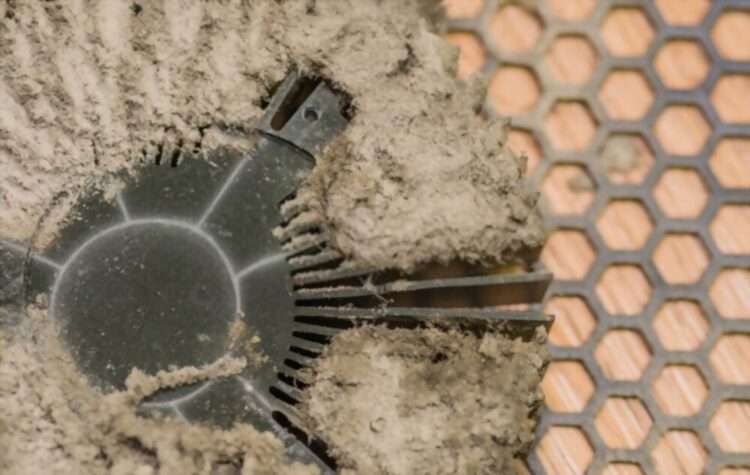
Overclocking GPU
If you have overclocked your GPU, then you might come up with overheating issues. By overclocking, you push your GPU to achieve higher clock speed to improve performance. This generates more heat, so you will notice unusual temperatures. If you have recently overclocked your GPU, revert the changes to default. If that doesn’t work as well, then it’s time to underclock your GPU using MSI Afterburner.
Broken or Loose Fan
A broken or lose GPU fan might not efficiently dissipate the heat causing your GPU to overheat. It’s important to fix the broken fans to avoid any further damage to your graphics card.
An effective way to check the broken or lose fan is by placing your ear nearby the GPU (while it’s running). If you hear squeaky or clicking sound, then your GPU fan is either lose or broken and it’s time to fix it. Also, check if there are any obstacles that are preventing the fans from spinning at their normal speed.
Update the GPU Drivers
It might look like a weird solution, but the drivers of your graphics carry a set of instructions to control the fan. Updating your old drivers can help the GPU fan run at an optimal speed to cool down the rising temps, thus preventing GPU to overheat.
Tight Air Flow
The older PC cases didn’t have enough room for proper ventilation. And if you have installed the graphics card in a PC case with a limited supply of air, then it is obvious for the temperature to build up inside the case.
Always choose a PC case that has a proper ventilation system for better air inflow. If you are living in a hot and humid place, then it’s wise to remove the panel from one side to promote maximum airflow.
Check the Thermal Paste
Yes, the thermal paste works the same way for a GPU as it does for a CPU. Although a GPU makes use of large heatsinks and fans to cool down, it needs a good thermal paste to transfer heat from the processor to the heatsink.
Applying a good-quality thermal paste on your GPU can possibly fix the overheating issues. You can find a lot of tutorials on YouTube on how to install a thermal paste on GPU. Make sure you remove the older thermal paste with the help of isopropyl alcohol before applying the new one.
The Last Step: Use a Water block
If all of the above solutions do not work in cooling down your GPU, it’s time to do one last thing, and that is to install an aftermarket water block. But before using a water block, make sure you have a spacious PC case to prevent any heat buildup.
Also, installing a liquid cooler on your GPU isn’t an easy task. You have to tear the existing fans and heatsink and install the ones that are compatible with a liquid cooling kit.
We don’t recommend you to go for this option if you have a low-budget graphics card. Liquid cooling is an ideal option if you have a high-end graphics card that you really don’t want to throw away.
The Final Words
We hope that by applying the solutions, you can easily fix the graphics card overheating issues. Most probably your GPU would be running hot due to dust buildup inside the fans. If your fans are clean, then try to go with the least expensive options like reapplying the thermal paste.
Customizing your GPU with a water block to prevent overheating is an expensive option, don’t go for it unless you have budget and knowledge.
Graphics cards are designed to get hot and work under heavy loads. Like we’ve said earlier, the temperature of a GPU can reach up to 85°C under 100% load. Unless your GPU surpass this range, there is nothing to worry about.

Hi, I’m the author and founder of this blog. I have more than 10 years of experience in the industry. Throughout my journey I’ve tested and reviewed hundreds of graphics card for custom PC builds. I believe my knowledge and experience will help you choose the card that really falls to your needs and budget.
